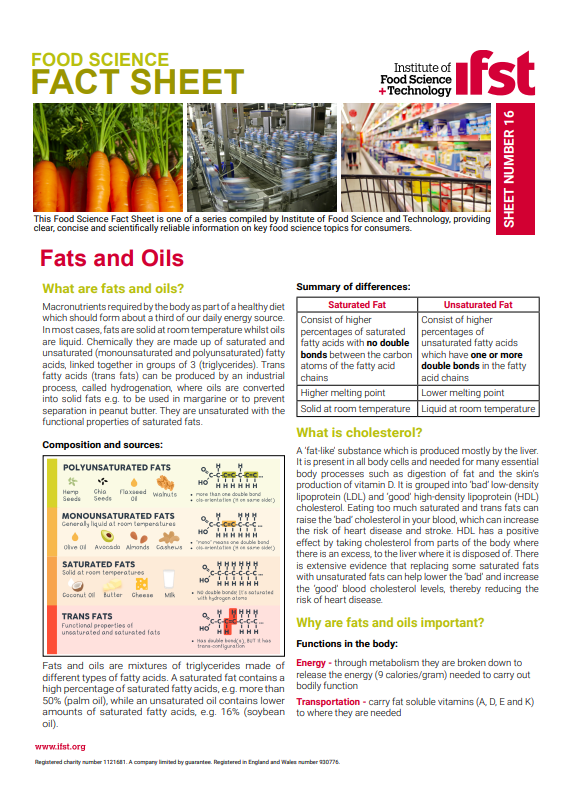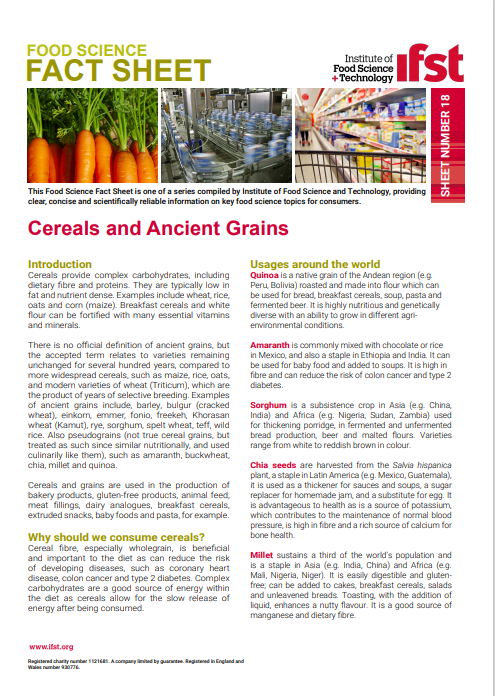
Science and Nutrition Fact Sheets have been compiled to provide clear, concise and scientifically reliable information on key food science topics. They aim to provide the public or lay reader with a basic understanding of scientific principles. If you have any questions about the series or would like to discuss the content of any of the Food Science Fact Sheets, please contact us!
SugarsIFST's Food Science Fact Sheet on Sugars answers the
|
Gut Health and the MicrobiomeIFST's Food Science Fact Sheet on Gut Health and the Microbiome answers the following questions: |
Protein Food SourcesIFST's Food Science Fact Sheet on Protein Food Sources answers the following questions: |
Fats and OilsIFST's Food Science Fact Sheet on Fats and Oils answers the following questions:
|
Cereals and Ancient GrainsIFST's Food Science Fact Sheet on the Cereals and Ancient Grains answers the following questions:
|
|



